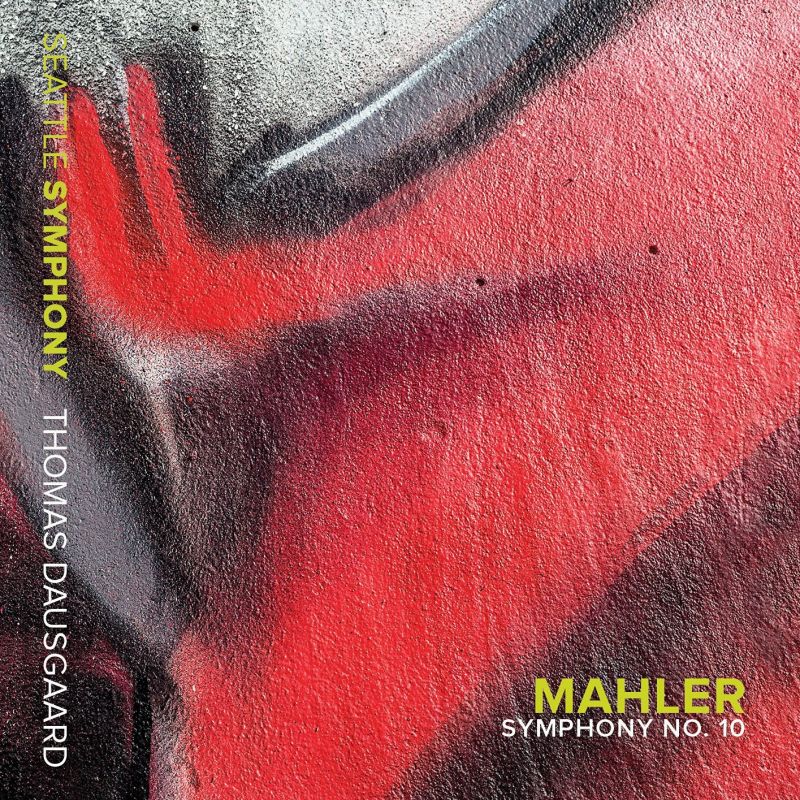MAHLER Symphony No 10
View record and artist detailsRecord and Artist Details
Composer or Director: Gustav Mahler
Genre:
Orchestral
Label: Seattle Symphony Media
Magazine Review Date: AW16
Media Format: CD or Download
Media Runtime: 71
Mastering:
DDD
Catalogue Number: SSM1011

Tracks:
| Composition | Artist Credit |
|---|---|
| Symphony No. 10 |
Gustav Mahler, Composer
Gustav Mahler, Composer Seattle Symphony Orchestra Thomas Dausgaard, Conductor |
Author: David Gutman
When a composition comes down to us as a work in progress, it is only to be expected that musicologists and interpreters should feel entitled to innovate. Thomas Dausgaard adopts the familiar Deryck Cooke performing version but gives it a potent new slant. If you only know the conductor from his buoyant post-authenticist work with the Swedish Chamber Orchestra you may be surprised by his force and conviction as a Mahlerian. Three concert performances, dedicated to the victims of terrorist attacks in Paris and Beirut, have been edited together to make a convincing own-label release and I should say at once that the standard of execution is astonishing given that the Seattle Symphony had never previously encountered the ‘complete’ score. I can’t remember hearing a more turbulent and propulsive rendition, nor one that does so much to address the string-heavy bias of the Cooke realisation.
Dausgaard sees the music differently from Yannick Nézet-Séguin, whose occasionally somnambulistic, less than squeaky-clean recent Montreal account is comprehensively outclassed. So too are most of its predecessors. Even the opening Adagio sounds freshly imagined in Seattle, a switchback ride embracing almost expressionless torpor, passionate bloom and even puckish humour at the expense, perhaps, of a measure of its horror and ferocity. The strings are remarkably assured even in the highest-lying writing; and, if you like consequential phrasing and copious old-school portamentos, this will be a must-have. Wind contributions are similarly characterful. Those lean chamber-music textures (whose provisional quality is surely the strongest argument against performing the Adagio as a freestanding entity) sound more than usually finished.
The conductor’s passionate temperament is yet more evident in the second and fourth movements. Some will find him too loud, too pressurised and too fast in the first Scherzo but he takes the players with him, transforming what can sound awkwardly tentative into a proto-Hindemithian whirlwind of colour and noise with a virtuoso dash to the finish. The second Scherzo is just as racy, its mood-changes deftly handled with real Viennese charm in the Trio section and a wonderfully clear and clean winding-down towards the finale. The transition involves the kind of monumental, ear-rending bass drum thwacks that a young Simon Rattle favoured in his early Bournemouth recording. In concert, Riccardo Chailly has lately tried prefacing the main beats with extra grace notes to simulate a tattoo. Duller solitary thuds remain the ubiquitous solution on disc.
Those who have grown up with Rattle or Kurt Sanderling will notice some additional textual departures. While excising one of the indicated drum strokes to pass seamlessly into the finale has not become the norm, unsuspecting listeners might nevertheless suspect an editing fault when interpreters like Dausgaard stick by what the composer actually drafted. There are no percussive reinforcements at the return of the Adagio’s piled-up breakdown chord. Nor will you find bass clarinet deployed in lieu of bassoon for Cooke’s pastiche counterpoint from bar 162 of the Adagio itself. Perhaps Dausgaard’s Seattle music-making can be fractionally less emotive than was Rattle’s in Bournemouth but the results are rarely less than supercharged. The lugubrious tuba solo with which Cooke chose to initiate the fifth movement is as impressive as any. I haven’t mentioned the central ‘Purgatorio’ because it’s difficult to imagine it better done. The team’s absolute commitment to their principal guest conductor can scarcely be doubted.
To cap it all, the packaging is classy, with individualistic annotations from the conductor himself. Discussing the music in terms of biography and psychology does not give rise to a ‘sentimentalised’ performance. Heartfelt exclamations addressed directly to Mahler’s beloved Alma famously litter the manuscript – ‘für dich leben! für dich sterben!’ (‘to live for you! to die for you!’) – yet the outcome here is properly cogent, life-affirming and schmaltz-free. The recording per se is very vivid too, bringing everything a little close in order to exclude audience noise. In the event one can imagine the lucky patrons of Seattle’s state-of-the-art Benaroya Hall listening in rapt silence. This exceptional issue from the Pacific Northwest ought to be a game-changer for all concerned.
Discover the world's largest classical music catalogue with Presto Music.

Gramophone Digital Club
- Digital Edition
- Digital Archive
- Reviews Database
- Full website access
From £8.75 / month
Subscribe
Gramophone Full Club
- Print Edition
- Digital Edition
- Digital Archive
- Reviews Database
- Full website access
From £11.00 / month
Subscribe
If you are a library, university or other organisation that would be interested in an institutional subscription to Gramophone please click here for further information.




